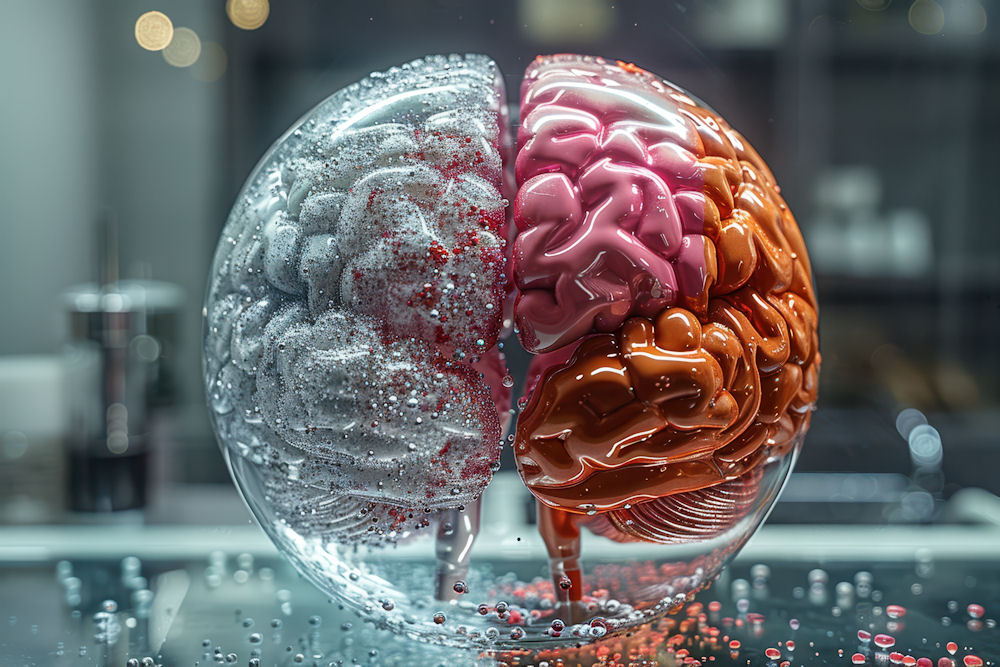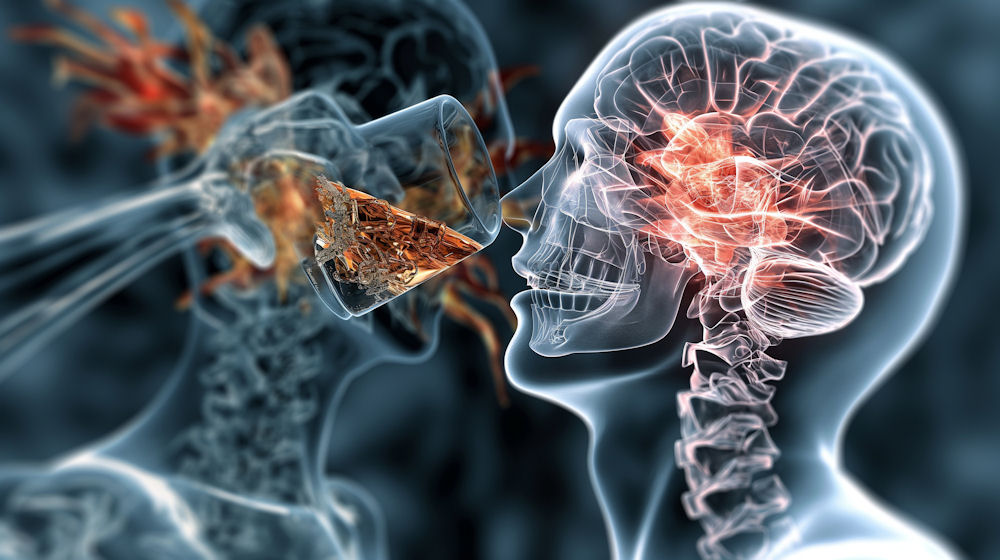Alcohol’s impact on the brain can be profound and long-lasting, leaving many individuals wondering how—and when—they can begin to heal. For those struggling with alcohol use, understanding the brain’s recovery process is an essential step toward reclaiming health and clarity. This is especially significant in California, where alcohol abuse remains a serious concern. Recent data shows that nearly 14% of adults in the state report binge drinking, and alcohol-related hospitalizations number in the tens of thousands each year.
At Laguna Shores Recovery, located in tranquil Dana Point, California, we understand the unique challenges faced by those on the road to recovery. Offering specialized detox and residential treatment, we’re here to help individuals overcome addiction and rebuild their lives. If you’ve been asking how long it takes for your brain to recover from alcohol, you’re not alone—and there’s hope.
Recovery is possible, and with the right guidance, the brain’s remarkable ability to heal can surprise you. Read on to learn more about the recovery timeline and what steps you can take to support your healing process.

How Does Alcohol Impact the Brain?
Alcohol influences the brain in various ways, affecting both its structure and function. As a central nervous system depressant, it alters neurotransmitters—the chemical messengers facilitating communication between neurons. The brain’s reaction to alcohol can lead to both immediate and lasting effects.
When consumed, alcohol quickly enters the bloodstream and crosses the blood-brain barrier. This leads to a surge in the neurotransmitter gamma-aminobutyric acid (GABA), which causes feelings of relaxation and euphoria. Conversely, alcohol inhibits the release of glutamate, a neurotransmitter associated with excitement and energy.
The immediate effects often include impaired judgment, reduced inhibitions, and slower reaction times. As the consumption continues, these effects can escalate to confusion, disorientation, and even loss of consciousness.
Chronic alcohol use leads to significant changes in brain chemistry and structure. Ongoing exposure to alcohol can shrink the volume of critical brain areas, such as the prefrontal cortex and hippocampus, which are crucial for decision-making, memory, and learning.
Long-term alcohol abuse is associated with cognitive deficits, including difficulties with attention, memory, and problem-solving skills. This deterioration can manifest as conditions such as Wernicke-Korsakoff syndrome, a serious brain disorder caused by thiamine deficiency often found in alcoholics.
The impact of alcohol on the brain can extend beyond cognitive functions to emotional and behavioral aspects. Individuals with a history of heavy drinking may experience heightened anxiety, depression, and mood swings, which can further complicate their social interactions and relationships.
The brain’s reward system, which is heavily influenced by alcohol, can also become dysregulated, leading to increased cravings and the potential for addiction. This cycle of dependency can create a challenging environment for recovery as the brain struggles to regain its normal balance in the face of ongoing substance use.
The Brain’s Recovery Process: A Timeline
Understanding the recovery timeline from alcohol-related brain damage is essential for individuals undergoing treatment. While the recovery process varies for each person, it typically includes several stages.
Detoxification is often the first step in recovery. This phase involves clearing alcohol from the body and managing withdrawal symptoms. The detox process usually lasts between a few days to a week, depending on the severity of alcohol dependence.
During this time, many experience anxiety, tremors, nausea, and, in severe cases, delirium tremens (DTs). Medical supervision is critical in this stage to manage symptoms and ensure safety. In some cases, medications such as benzodiazepines may be administered to alleviate withdrawal symptoms and reduce the risk of complications. The environment during detox is also important; a calm, supportive atmosphere can significantly impact the individual’s experience and willingness to engage in the recovery process.
Following detox, individuals may experience Post-Acute Withdrawal Syndrome (PAWS), which can last for weeks or even months. PAWS is characterized by emotional disturbances, cognitive difficulties, and craving for alcohol.
This phase can be particularly challenging as symptoms may fluctuate over time, impacting mood and overall motivation. Therapeutic support can be immensely beneficial in navigating these challenges. Group therapy sessions and support groups like Alcoholics Anonymous (AA) can provide a sense of community and shared understanding, which is vital for those feeling isolated in their struggles.
Additionally, lifestyle changes, such as regular exercise and a balanced diet, can help mitigate some of the emotional and cognitive symptoms associated with PAWS, promoting overall well-being during this critical phase of recovery.
How Long Does it Take for Your Brain to Recover From Alcohol?
The brain begins to heal after the acute withdrawal phase, although full recovery takes time. Research indicates that it can take months or even years for the brain to recover fully from the effects of alcohol.
Neuroplasticity, the brain’s ability to reorganize itself and form new neural connections, plays a critical role in this healing process. Engaging in cognitive rehabilitation activities, combined with therapy, can support recovery efforts.
Activities such as puzzles, memory games, and learning new skills can stimulate brain function and promote cognitive recovery. Incorporating mindfulness practices like meditation and yoga can enhance emotional regulation and reduce stress, which is crucial for maintaining sobriety.
The duration of brain recovery varies among individuals and is influenced by several factors. Understanding these elements can help personalize the recovery journey.
Individuals who have engaged in heavy, prolonged alcohol use may experience longer recovery times. The extent of cognitive impairment and physical degeneration often correlates with the severity of alcohol abuse.
In such cases, the brain may need more time to heal and regenerate, making a structured recovery plan crucial for success. Research indicates that chronic alcohol consumption can lead to alterations in brain structure, including shrinkage in areas responsible for memory and decision-making. These changes can complicate the recovery process, necessitating targeted interventions that address both the physical and psychological aspects of addiction.
Each person’s overall health plays a significant role in recovery time. Factors such as age, genetics, co-occurring mental health disorders, and nutritional status can all influence how the brain heals.
A healthier lifestyle, characterized by balanced nutrition, regular exercise, and sufficient sleep, can facilitate quicker recovery and enhance overall brain function. Additionally, engaging in cognitive exercises and mindfulness practices can further stimulate neuroplasticity, allowing the brain to form new connections and improve cognitive resilience.
Access to professional treatment and support systems can significantly influence the pace of recovery. Programs offering counseling, medication-assisted treatment, and holistic approaches can provide the necessary tools and framework for effective rehabilitation.
Engaging in regular follow-ups and participating in support groups can foster a sense of community, reducing feelings of isolation and encouraging sustained recovery efforts. The integration of family therapy can also play a pivotal role in the recovery process, as it helps to mend relationships that may have been strained due to alcohol abuse.
The Science Behind Brain Recovery
The recovery of brain function following alcohol abuse is not merely a matter of time but also a complex interplay of biological processes. Understanding this science can inspire hope for those in recovery.
Neuroplasticity is the brain’s remarkable ability to adapt and change in response to experiences. Following alcohol cessation, the brain can rewire itself, forming new neural pathways that can compensate for those damaged by alcohol.
Engaging in new learning activities, social interactions, and physical exercise can stimulate neurogenesis, whereby the brain generates new neurons, contributing to recovery. Activities such as learning a new language, playing a musical instrument, or even practicing a new physical activity can significantly enhance cognitive flexibility and emotional resilience, which are crucial for long-term recovery.
Diet plays a critical role in brain recovery. Consuming a well-balanced diet rich in omega-3 fatty acids, antioxidants, and essential vitamins can enhance cognitive function and support the healing process.
Foods such as fish, nuts, fruits, and vegetables should be prioritized. Additionally, hydration is crucial. Staying hydrated can improve overall brain function and alleviate symptoms associated with recovery. Furthermore, certain nutrients like B vitamins, particularly B1 (thiamine), are vital for brain health and can help mitigate some of the cognitive deficits associated with alcohol abuse. Supplementing with these vitamins can provide additional support during the recovery process.
Incorporating foods that are high in flavonoids, such as berries and dark chocolate, can also offer neuroprotective benefits. These compounds have been shown to improve blood flow to the brain and enhance memory and learning capabilities. Therefore, a conscious effort to adopt a nutrient-dense diet not only aids in physical recovery but also fosters mental clarity and emotional stability, creating a solid foundation for a healthier lifestyle post-recovery.

Maintaining Brain Health Post-Recovery
Once the initial recovery phase is complete, maintaining brain health is vital for preventing relapse and ensuring overall well-being. Certain strategies can help sustain cognitive function and promote long-term sobriety.
Developing effective coping mechanisms and strategies for handling triggers is essential. This may include mindfulness practices, avoidance of high-risk situations, and a strong support network.
Participating in continuous therapy or support groups can bolster commitment to sobriety and provide a safe space for sharing challenges and successes. Additionally, engaging in creative outlets such as art, music, or writing can serve as powerful tools for self-expression and emotional processing, allowing individuals to channel their feelings in constructive ways. These activities not only foster a sense of accomplishment but also help to build a positive self-identity that is crucial for long-term recovery.
Mental health plays a pivotal role in effective recovery. Seeking help for underlying mental health conditions, such as anxiety and depression, can significantly impact the recovery journey.
Incorporating therapeutic practices, such as Cognitive Behavioral Therapy (CBT) or mindfulness meditation, can enhance emotional resilience and promote a healthy mental state. Establishing a daily routine that includes time for self-care, relaxation, and reflection can help individuals stay grounded and focused on their recovery goals. Activities like journaling or engaging in nature walks can provide clarity and reinforce a sense of purpose, making it easier to navigate the complexities of life post-recovery.
Physical activity is not only crucial for physical health but also profoundly beneficial for brain health. Regular exercise boosts circulation, leading to improved oxygen flow to the brain and the release of neurotransmitters that enhance mood and cognition.
Engaging in activities like walking, running, or yoga can contribute to overall well-being, provide a healthy outlet for stress, and support long-term recovery efforts. Group exercise classes or team sports can foster social connections and combat feelings of isolation that may arise during recovery.
Your Brain’s Recovery is Possible with the Right Support
The road to recovery from alcohol’s effects on the brain may feel daunting, but understanding the timeline and process can empower you to take the first step. While the exact time frame varies for each individual, the brain’s resilience offers hope for healing with proper care and abstinence. Early improvements like better sleep, sharpened memory, and regained mental clarity are just the beginning of profound long-term recovery.
At Laguna Shores Recovery, we specialize in providing the care and expertise needed to help you through this process. Our detox and residential treatment programs in Dana Point, California, are designed to address both the physical and emotional aspects of recovery in a supportive environment. Whether you’re just starting or continuing your recovery, we are here to guide you every step of the way.
It’s never too late to reclaim your health and rebuild your life. Seeking professional help can make all the difference in achieving a successful and lasting recovery. Take that courageous first step today—your brighter, healthier future awaits.

 Matthew Beck B.A, M.A, LMFT
Matthew Beck B.A, M.A, LMFT 


